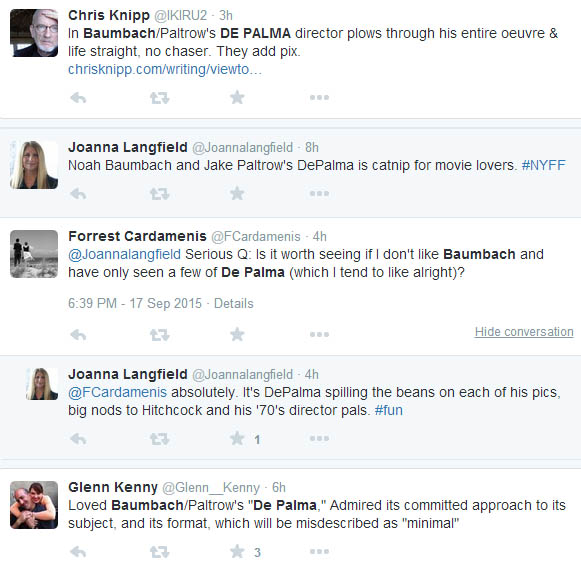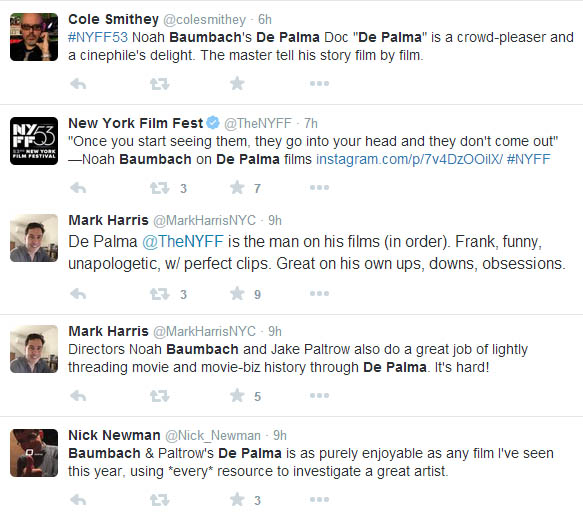HAPPENED YESTERDAY (THURSDAY 9/17), AMY TAUBIN ON STAGE W/PALTROW & BAUMBACH AFTERWARD


CHRIS KNIPP REVIEW: THE KIND OF FILM ONE SHOULD WATCH OVER AND OVER ON DVD
Here's an excerpt from Chris Knipp's review of De Palma:
"As De Palma talks, apparently in a single long interview, Baumbach and Paltrow, who claim a decade-long friendship with him, edit in clips to illustrate the movies and their influences. De Palma is very specific and not very theoretical, but makes several key general remarks along the way. The rest we have to deduce by ourselves. First he says he doesn't work from character as they (Baumbach and Paltrow) do, but starts with 'structure' and lets the film develop from there. He also says that everybody remarks on the genius of Hitchcock, but he is the only director to follow Hitchcock's methods extensively...
"The one long interview that seems to provide the material for this film includes De Palma's description of his dysfunctional family, his Quaker education, his undergraduate studies at Columbia and graduate work at Sarah Lawrence, and his various marriages and divorces, but personal details are firmly subordinated to the 28-film oeuvre, but he does describe his early and in some cases long-term relationships with major film figures who were contemporaries: Spielberg, Lucas, Coppola, Scorsese, De Niro. Baumbach and Paltrow's illustrative material is invaluable. Clips showing long tracking shots (Pacino, Nick Cage), of chases and shootouts, help give just a glimpse of De Palma's technical gift for storytelling with motion.
"The chronological approach means De Palma can describe developments in the film industry, his role in the New Hollywood when briefly directors could be independent and creative in a studio setting, followed by the takeover of the bottom-line obsessed aesthetically challenged producers of the Eighties and onward. As he comes to the end of his of a nearly fifty-year career, De Palma says a director's best work is usually done in his twenties and thirties and forties, and suggests that he may not be up to the physical demands of the job now as he nears seventy: so he takes us from the beginning to the end. He may not be the most profound or uplifting filmmaker, but he must be one of the frankest, humblest, and clearest. This is a highly informative film about De Palma's work; it's actually the kind of film one should have on DVD and watch over and over to focus on and cull out elements."



